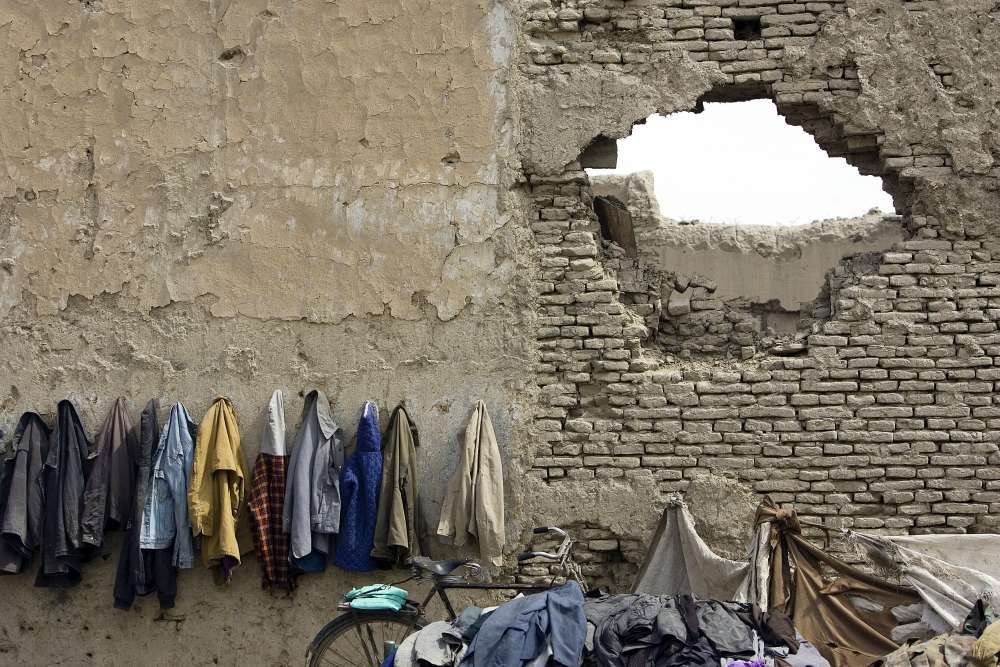Why German Foreign Ministers Need to Be More Like Jim Mattis

Tomorrow, we’re going to learn who Germany’s new foreign minister will be. Sigmar Gabriel, the incumbent, is no longer an option. Either of the rumored front-runners, whether Katarina Barley or Heiko Maas, would be new to an international affairs portfolio.
“Foreign Minister of Germany?” you might think, “that’s easy.” Travel even more than your travel-crazy compatriots, always carrying the torch for peaceful diplomacy, and gain a fantastic public approval rating to boot. Indeed, with only one exception, the past five foreign ministers consistently enjoyed better approval ratings than anybody else in German politics.
But times have changed. Along with the country’s slow awakening to the existence of a brutal and dangerous world “out there”, its foreign ministers have increasingly entangled themselves in a fundamental contradiction between two parts of their political role: the “chief diplomat” and the “security chief”. The chief diplomat has always been the one to produce those phenomenal approval ratings, so naturally it has been the part that every minister and their press team celebrated the most. It is also what made the job so attractive to every smaller coalition partner in Germany’s post-war history.
While it is surely fun and very challenging in itself, being chief diplomat is not enough. Every German foreign minister must also be the chief architect of the country’s security policy. This reflects a fundamental lesson from Germany’s militaristic past: while the minister of defense, always a civilian, is the peacetime commander-in-chief of the armed forces, it is the foreign minister’s prerogative to lead the government in formulating all aspects of security policy. In practice, whenever Germany deploys soldiers abroad, it is the Foreign Office that drafts the parliamentary motion that defines the objectives, the scope, and the rules of engagement. It was therefore at the suggestion of foreign ministers that the Bundestag approved fateful deployments to Afghanistan and Mali, while the Bundeswehr was subject to a massive cost-cutting effort. Yet, when it comes to military budgets, foreign ministers have kept aloof, or, as in the case of Sigmar Gabriel, actively undercut the military by framing any increase in military spending as joining an “arms race” and following the misguided example of Donald Trump.
When I talk to young German military officers, they experience this behavior as disloyal on the part of the Federal Government as a whole. These officers are deeply committed to civilian control and they want to submit to a political-diplomatic strategy. They hope for political leadership, including from the foreign minister. But, they understand it as a breach of loyalty when the same cabinet member who prepares the parliamentary decision for a life-threatening deployment misrepresents any military investment as a contribution to an ‘arms race’ in a party convention and fights military spending increases in coalition and/or budget negotiations. Their charge of disloyalty sticks. It sticks with foreign ministers who said nothing and enjoyed the political fruits of being identified with the friendly and peaceful business of diplomacy. And it sticks, of course, with the ministers of defense who either actively helped dismantle the armed forces or have done too little to rebuild them so far.
“If you don’t fund the State Department fully,” U.S. General Jim Mattis told the U.S. Senate Armed Services Committee in 2013, “then I need to buy more ammunition.” Since Robert Gates, every U.S. Secretary of Defense has been fighting to save American diplomacy and development from a Congress whose majority would rather give all the money to the Pentagon. In Germany, the tables are turned, and the armed forces need the same supportive attitude from its next foreign minister and from top diplomats. Whoever takes over the German Foreign Office in the coming weeks will face plenty of challenges as they lead. One will be to resist the temptation to pick and choose between the security and the diplomacy part of the job: the former is as much a part of the job as the latter, and sending troops into harm’s way also requires looking after their needs.
The CDU/CSU-SPD coalition agreement provides a solid foundation. Both sides want to invest more, both in diplomacy and development and in military and defense, “within the framework of a comprehensive common peace and security policy.” They foresee around a 20 per cent increase in annual defense spending over four years, along with increases in spending for diplomacy and development. The likely growth trajectory – from about €38 billion (in 2018) to between €43 and €46 billion (in 2021) – is necessary and realistic. It won’t take German spending above 1.3% of GDP, but it is likely to be as much as the defense bureaucracy and industry can convert into actual capabilities.
While the coalition agreement sets the right tone, spending is not everything, and the trust lost among the officer corps will not return easily. It’s a question of integrity for a foreign minister, in his or her role as political strategist, to take joint responsibility for all aspects of strategy – from development spending to the armed forces, as well as leading public debate on uncomfortable questions such as European nuclear strategy.
…
A German version of this commentary originally appeared in the German daily newspaper Frankfurter Rundschau on February 28, 2018.







